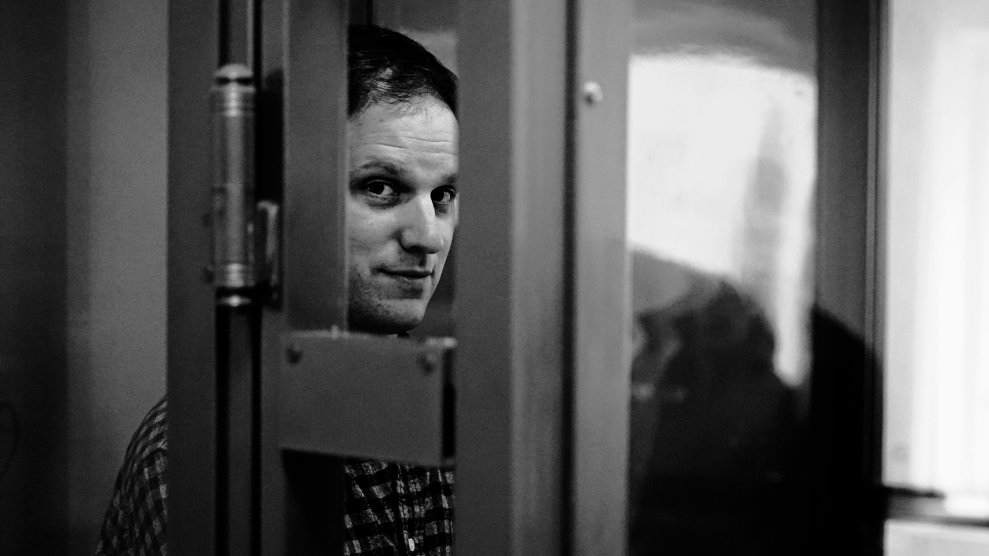Image: Ken Friedman
There are plenty of reasons to dislike “Dead Man Walking,” the new opera about a nun who befriends a death-row convict, which debuted in San Francisco in early October. The most striking thing about it, though, is the fact that it was made at all.
As a cultural offering, I suppose it’s all right. Even with a necessarily stripped-down script, this latest adaptation of the story of real-life Sister Helen Prejean’s relationship with semi-fictionalized murderer Joseph de Rocher does a decent job of limning the moral complexities of taking either side in a death-penalty case. There is some imaginative staging, some clever set design, some inventive lighting. And given the inherent drama of the subject matter, there are moments — when Joseph’s anguished mother meets his victim’s shattered parents, for instance — when opera’s inherent melodrama works well.
But I might as well be honest: I hate opera. You want elevated analysis of this one’s aesthetic triumphs and shortcomings, try Salon. Personally, hearing every line of a three-hour drama bellowed out as though it were the proclamation of the Second Coming just gives me a headache.
There’s also something disturbing about a story concerning some of America’s most marginalized citizens being turned into spectacle for the affluent. Tickets for this show ranged up to $165. This is opera, for godsakes; Johnny Cash and the Sex Pistols have both played American prisons, but I’m willing to bet that Luciano Pavarotti doesn’t have any shows coming up at San Quentin.
As a socio-political statement, though, “Dead Man Walking” is a lot more interesting. The fact that it was produced at all underlines the curious way that a tiny subset of America’s inmate population — the few thousand on death row — gets far more popular attention than the nearly two million other men and women behind bars.
Sister Prejean’s story, for a start, has already been made into a bestselling book and an Oscar-winning movie. Another play about real death row prisoners just opened in New York. Then there’s the phenomenal press attention paid to the execution of Texas’ Karla Faye Tucker, and, of course, the inescapable Mumia Abu Jamal. How many prisoners who aren’t on death row have so captured the public’s attention?
On one level, this is appropriate. Death row prisoners are facing punishment on an entirely different scale than any others. A condemned prisoner’s story is naturally more dramatic, and perhaps in some ways more important than that of one serving 30 years.
What makes the various incarnations of “Dead Man Walking” compelling, though, is not a question of guilt or innocence, but a moral issue: Are all people ultimately human beings, imbued with the possibility of redemption, or not? “Dead Man” is really the story of Sister Prejean struggling to embrace the idea that no matter how horrible a crime someone has committed, that person is still a human being and thus deserving of a measure of compassion and empathy.
I’m happy to see that issue raised in a popular book, movie, or even an opera. What’s striking, though, is that it only seems to generate significant public attention in the context of the death penalty — even though the same moral issue applies to many of this country’s other two million prisoners, especially those serving long mandatory minimum sentences.
Mandatory minimums, after all, are drawn from the same moral guidebook as the death penalty. Their shared premise is that certain kinds of criminals are just irredeemably bad. Mandatory minimums, like California’s famous “three-strikes” law, take away a judge’s discretion to decide how long a sentence someone convicted of a particular crime should serve, dictating instead a set period of incarceration, usually with no chance of parole.
They came into vogue in the 1980s, and are a major part of the reason why America’s prison population has quadrupled since 1980. As a result of these laws, there are thousands of people who will spend decades behind bars with no possibility of release, regardless of how much they change, repent, or seek to redeem themselves.
If you lock someone up for 30 or 40 years, you may not have killed them, but you have pretty much ruined their life. Still, I have yet to see any movies or operas concerned with the essential humanity of a convict doing 40 years for multiple armed robbery.
Of course a death-row murderer like Sister Prejean’s friend deserves to be thought of as a human being. But doesn’t a murderer doing life in prison deserve the same? Do you have to be condemned before people will ask if you can be redeemed?











